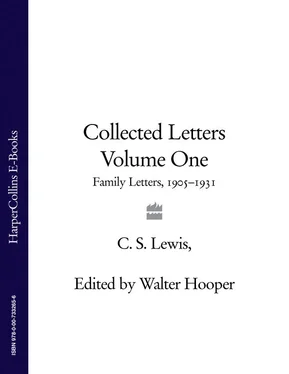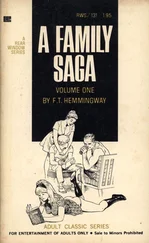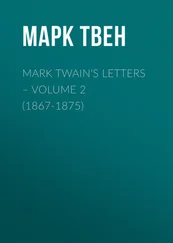For all we have and are,
For all our children’s fate,
Stand up and meet the war,
The Hun is at the gate!
Our world has passed away
In wantonness o’erthrown.
There is nothing left today
But steel and fire and stone.
108Rudyard Kipling, Barrack-Room Ballads and Other Verses (1892).
109‘The Brushwood Boy’ is one of the stories in Kipling’s The Day’s Work (1908).
110The ‘dedication piece’ which refers to ‘my brother’s spirit’ and ‘gentlemen unafraid’ is the dedication poem to Wolcott Balestier in Barrack-Room Ballads; ‘The Last Rhyme of True Thomas’, ‘The First Chantey’ and ‘The Last Chantey’ are found in The Seven Seas.
111Sir Henry John Newbolt (1862-1938) was educated at Clifton College and Corpus Christi College, Oxford. He is remembered particularly for his nautical ballads published in Admirals All and Other Verses (1897).
112Thomas Love Peacock, Headlong Hall (1816).
113William Shakespeare, Sonnet 17 (1609).
114Arthur Schopenhauer, The World as Will and Idea (1883-6).
115Algernon Charles Swinburne, Erechtheus (1876); Atalanta in Calydon (1865).
116The Battle of Mons, on the Western Front, began on 23 August 1914. For the whole of that day the British held the line against the Germans with greatly inferior numbers. A legend began within two weeks of the battle that an angel had appeared ‘on the traditional white horse and clad all in white with flaming sword’. Facing the advancing Germans the angel ‘forbade their further progress’. Martin Gilbert, First World War (1994), p. 58.
117‘Killed in Action’ by R.C.L. is found in Punch, Vol. CXLIX (13 November 1915), p. 310.
118Horace, Epistles, 2. 2. 17-19.
119This is Théo Ysaÿe (1865-1918), a pianist and composer, brother of Eugène.
120‘Auf den Bergen’ is a piano solo from Edvard Grieg’s Folkelivsbilleder (1872).
121George Gordon, Lord Byron, The Destruction of Sennacherib (1815), l. 1: ‘The Assyrian came down like the wolf on the fold’.
122‘It was the schooner Hesperus’ is l. 1 of Henry Wadsworth Longfellow’s The Wreck of the Hesperus (1839); ‘Under the spreading chestnut tree’ is l.1 of Longfellow’s The Village Blacksmith (1839).
123Barkis is the character in Charles Dickens’ David Copperfield (1849-50) who sent a message by David to Clara Peggotty that ‘Barkis is willin’.’
124Albert had been appointed a church warden at St Mark’s for the third time.
125W.S. Gilbert and Arthur Sullivan, The Pirates of Penzance (1879), Act II.
126Albert replied on 26 November 1915: ‘I was glad to get your kind and sympathetic letter. I have done as you would wish. I have just written to Warnie to say that inasmuch as he says he will not get leave again until the end of the war, I have altered my decision and have written to you to hold yourself in readiness to leave when he calls. I shall write to K. and send your travelling money later. You may tell K. what is impending if you like’ (LP V: 34).
127Chaucer, Troilus and Criseyde, bk. V, l. 585: ‘Men mighte a book make of it, lik a storie!’
128Virgil, Aeneid, IV, 298: ‘Incline to fear where all was safe…’
129Andrew Lang, History of English Literature (1912).
130John William Mackail, Springs of Helicon: A Study in the Progress of English Poetry from Chaucer to Milton (1909); The Life of William Morris, 2 vols. (1899).
131i.e. Chaucer’s Legend of Good Women and Troilus and Criseyde are better than his most popular work, The Canterbury Tales (composed 1387-1400).
132Gilbert Murray, A History of Ancient Greek Literature (1897). Murray (1866-1957) was Regius Professor of Greek at Oxford 1908-36, and a distinguished translator of Greek plays.
133People who frequent the agora (market place), i.e. the common people.
1916 
J ack was at Little Lea when, on 8 January, The Times published the Military Service Act, which was expected to come into effect soon. In a section concerning the ‘Obligation of unmarried men to serve’ it stated that included among those who would have to serve were: ‘Every male British subject who, on the fifteenth day of August nineteen hundred and fifteen–(a) was ordinarily resident in Great Britain; and (b) had attained the age of eighteen years and had not attained the age of forty-one years; and (c) was unmarried or was a widower without children dependent on him’ (p. 8).
In a ‘Service Act Proclamation published in The Times on 4 February 1916 King George V ordered that the Military Service Act come into operation on 10 February 1916. Even then, Jack had reason at this time to think he might not be required to serve. The Times of 8 January had published, along with the Military Service Act, notification of ‘A Bill to make provisions with respect to Military Service in connection with the present war’ (p. 8). ‘Exemptions,’ it declared, would include ‘Men who are resident in Great Britain for the purpose only of their education or for some other purpose.’
While the Military Service Act went into effect on 10 February, the question of exemptions for Irishmen was debated by the Government for many months, during which time Jack did not know whether he would qualify for exemption or not. By the time it was clear that exemption would apply to him, and that he was not required to serve, he had decided that he should serve nevertheless.
TO HIS FATHER (LP V: 48-9):
[Gastons]
Postmark: 31 January 1916
My dear Papy,
One of the small consolations that a long experience of the continual change from term to holidays and vice versa brings, is the ability to settle down at once. I feel now as if I had been here for several months and have quite got into the old routine again. Everything at Bookham is of course in statu quo–I believe it would still be a hundred years hence. It is beautiful spring weather, as it was at home when I left you, and if only one could have that matutinal cup of tea, life would have nothing more to offer.
I spent the afternoon last Saturday in town, at the Shaftesbury, where there was a matinée of Carmen: 1 the singing was very poor, especially our friend the bass, whose rendition–I fancy that is the correct term–of the Toreador song was a thing to make the angels weep. Carmen herself however was quite good, and the tenor tolerable, so that on the whole I might have fared worse. With the opera itself, apart from the performance, I was very pleased. Just about the right percentage of the tunes was (it ought to be ‘was’ not ‘were’ oughtn’t it?) familiar to me, and the ones which I had not heard before ‘discoveries’.
This afternoon I have been a long walk to a perfectly delightful village 2 that I had never found out before, and I wish you could see it. It is rather like some of the places described in the ‘Upton Letters’ only more so. One old house–a thing as thick as a cottage and a good deal longer than Leeborough, all built on different levels, bears the legend ‘1666’. The best things however are the dragons and other monsters on the roof. Another most excellent codotta is the White Horse where you can drink tea, and a parlour that was used in the coaching days, and has not, by the look of it, been furnished since. If only they would dust the butter it would be quite ideal.
Читать дальше













